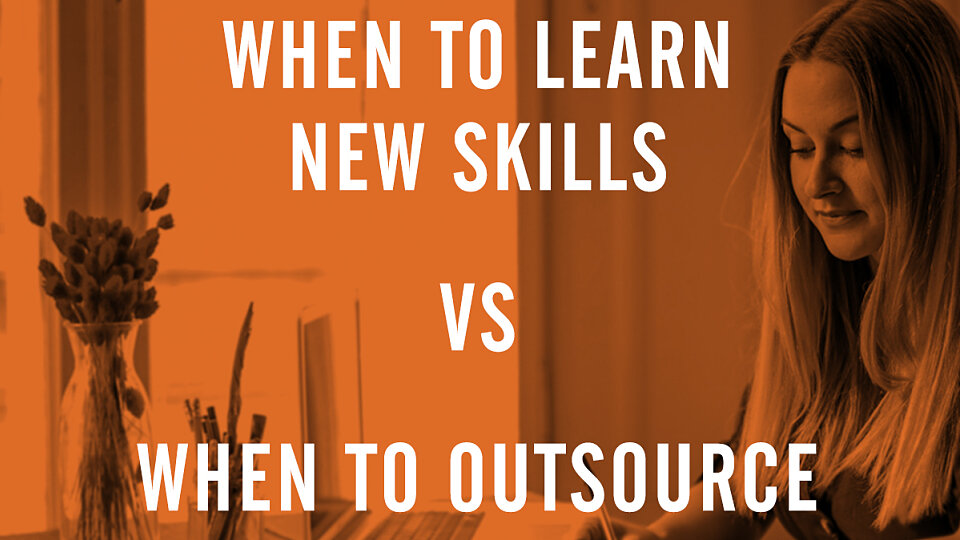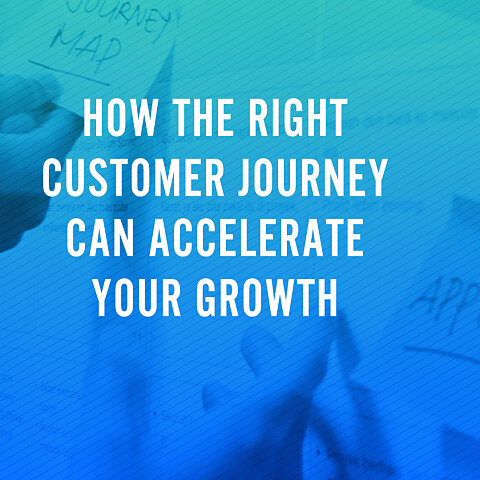When to Learn New Skills vs When to Outsource
By Maurilio Amorim
I'm a lifelong learner, which to me means that I am constantly learning new skills. And for those of us who work in nonprofits or churches, the temptation to do all the things is even more pressing: "Why pay for this skill when I can learn it myself?"
While that can-do attitude keeps us on top of our game, it has a dark side: it can be overwhelming, time-consuming, and leads to little or no results.
Where is the balance? How do you become a lifelong learner without drowning in details?
That's my struggle. Every single day. How deep should I get into Facebook ads? How prolific should I be in Mailchimp or customer relationship management software?
If you are anything like I am, you can go down a rabbit hole of software only to find out that it leads nowhere, or worse, to a pit of despair! After hours of digging and watching tutorial videos, you know more about the software. Still, you will most likely be nowhere near a level of proficiency to make a significant impact on your project.
As a marketing agency leader, I need to have a good understanding of the tools we use. But I also want to be careful not to waste time and effort on tools I will never master nor should.
So, this is a working model that I have decided to follow in the past 12 months when deciding what I should involve myself in and what I shouldn’t. I have three central tenets:
Focus on Strategy First
At The A Group, we have said from our very beginning that we are a strategy-first company. That means that we don't focus only on tactics since they change constantly, but we focus first on the strategy that deploys the tactics. A sales funnel concentrated on a specific audience is a strategy. Facebook ads are tactics that support the funnel strategy.
I know from years of experience that if the strategy is not correct, then the tactics will not do well. That’s why I stay involved in strategy but back off when it comes to every tactic or asset. I hire people who are specialists in certain tactics and trust them to produce great, effective work.
Decide Your Most Important Contribution
Understanding what only you can or should do in your organization is perhaps the greatest act of self-awareness you can bring to your job. If you have a team, they can execute every task well and still not accomplish the project's goal.
For me, understanding our clients' goals and making sure our team is always thinking through them is more important than learning how to deploy or write ads. As much as I enjoy writing ad copy, others can do a much better job.
Learn But Don't Master
This tenet goes against everything my mother taught me as a child: whatever you do, be the best at doing it! She went as far as to say, "Son, I hope you will never be a thief, but if you decide to be one, don't be a petty thief. Steal something worth going to jail for." Thank you, mom!
But in business, that's terrible advice. If you are leading a team or even if you are a team of one, you shouldn't master everything. You can't anyway.
My goal is to know enough about trends, platforms and strategies to find the people who are skilled in them and make sure the projects move forward. Think about it like a construction site that you are in charge of. While you have skilled workers to do the plumbing, electrical and finishes, the more you understand how each job should be done, the better you can manage the outcome.
I listen to several podcasts that are helpful on email trends, social media tactics and sales funnels best practices to keep current in what's possible and what's working in marketing. I find that a 40-minute explanation of email best practices is enough to think through our campaigns. But I must confess that from time to time, I geek out on something that takes me deep into the tactics, and I have to pull myself back and have the inner conversation of "learn but don't master."
If you are a perfectionist working in marketing or communications, you face that challenge every day. But take a few minutes to think through your to-do list and answer these questions:
- What's the most important outcome of this project? What's the win?
- What should I contribute that only I can do?
- What should I delegate? And to whom?
- What area(s) I need to sharpen my knowledge that will help me move this project forward better, faster and with better results?
Starting your day with these questions will help you move through challenges a lot better and give your projects a better outcome.
From reading this, you know that strategy is my forte. I love helping our clients figure out strategies that work.
I developed a framework that has helped my team write and deploy marketing campaigns for our clients for decades. If you want to join my free training on the GAST method, sign up here.














